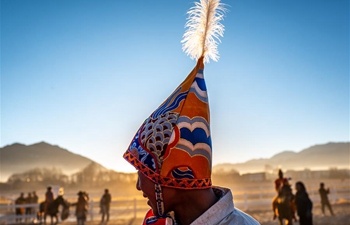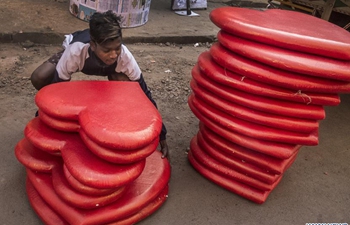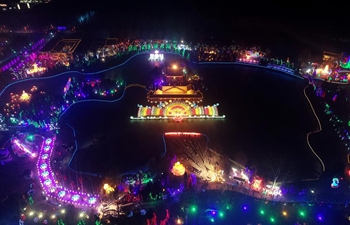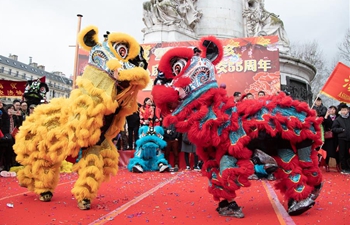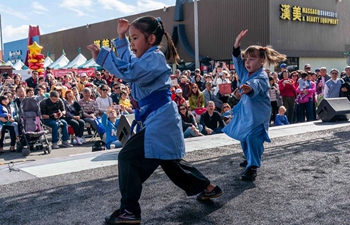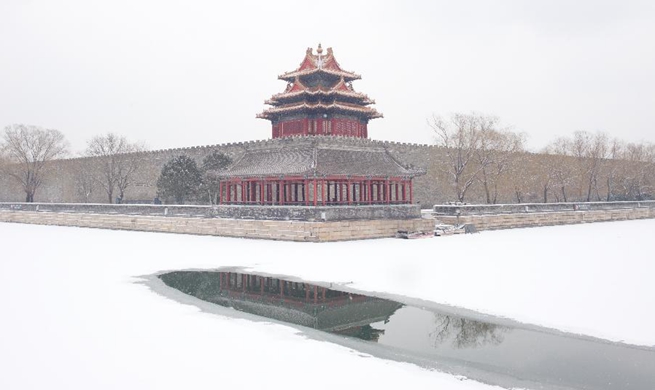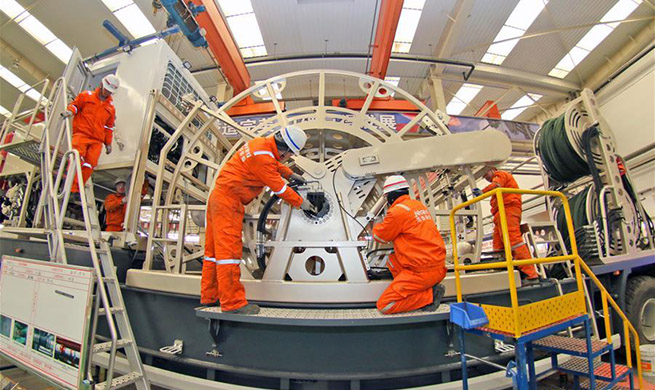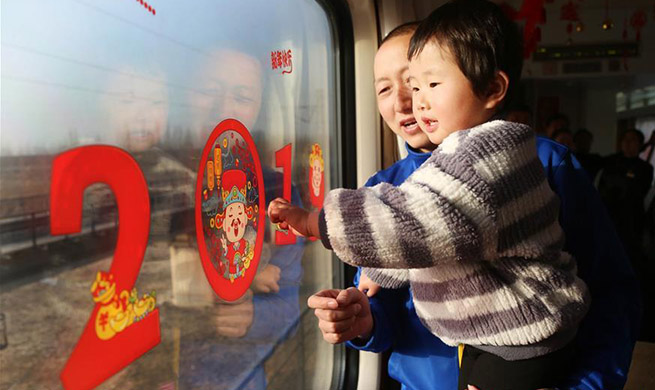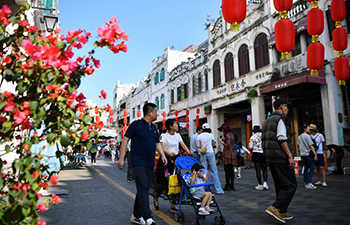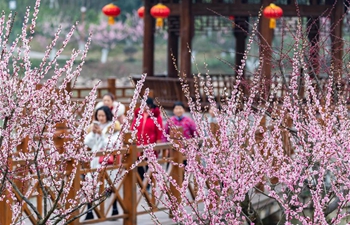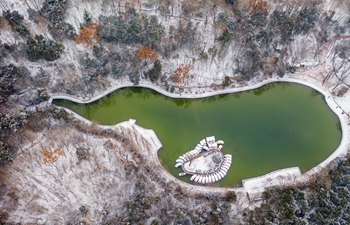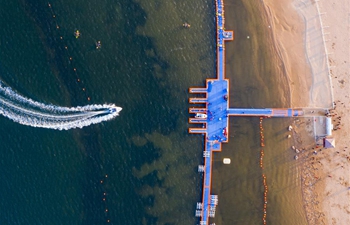SANAA, Feb. 12 (Xinhua) -- On Feb. 11, 2011, revolution broke out against Ali Abdullah Saleh, once the president of Yemen for more than 30 years.
The revolution ended in the murder of Saleh on the hands of the Houthis, once allies of the Yemeni president. An argument spread: who led the country to the quagmire of conflict and the brink of starvation?
The eighth anniversary took place with war in the country raging between the Arab coalition-backed government forces led by Saudi Arabia and the Iran-backed Houthi fighters.
Houthi group controlled most of the northern provinces of Yemen and are at war with the government forces in several parts of Yemen that started four years ago.
The ongoing war left behind thousands of victims, devastation of infrastructure and an economic collapse, with epidemics spreading. The United Nations said that "the humanitarian crisis in Yemen is the worst in the world."
Saleh was allied with the Houthis, but differences between the two sides developed into armed fights and eventually Saleh was himself murdered in December 2017 after several years of coalition with the Houthis.
With Yemen in the quagmire of violence and hunger which left millions of Yemenis without hope, the argument on the February Revolution role with the ongoing situation in Yemen was put to question.
Some allies of Saleh launched an attack on February Revolution on its eighth anniversary and termed it Nakbaa or calamity.
Leader of Saleh's General People's Congress party Adel Al-Shoujaa said "the Nakbaa of February changed Yemen to a pool of blood, spread banditry, and crises. Yemen became people without a country and a country without history."
On his facebook page, Al-Shoujaa said that "on the political project, the protesters of February Nakbaa offered no political solution that would push forward the state."
Political activist, Kamal Heidra, said what is happening now in Yemen was the result of what Saleh did and did not do in the February Revolution.
He said what happens in Yemen now cannot be accepted but as a fight back against the revolution and its objectives.
"What happens now in Yemen is nothing but the accumulation of the state failure under Saleh. The separatism of the south was rising since 2007 and Houthis were in a fight against Saleh since 2004. The terrorist organizations found in some provinces a safe haven. There are suspicions of links between the terror organizations and Saleh's security institutions," he explained.
Yemen's President Abd Rabbou Mansour Hadi said the February 11 Revolution is an example of the revolutions in Yemen's history and an embodiment of national alignment. The Houthis targeted it to impose the Iranian model.
In an editorial page, he said the youth sat on the ground in squares dreaming for the Yemenis to achieve a promising future. Their desire to change was one of the most crystal-clear criteria: peaceful transfer of power without any harm done to the state.
"The admirers of darkness and masters of backwardness decided to seize such a national achievement and stop the changing process against the people of Yemen to achieve the Iranian model of power," he said, in reference to the Houthis.
He warned the Yemenis against creating hatred and divisions among them, noting that they should replace such feeling by forgiveness.




